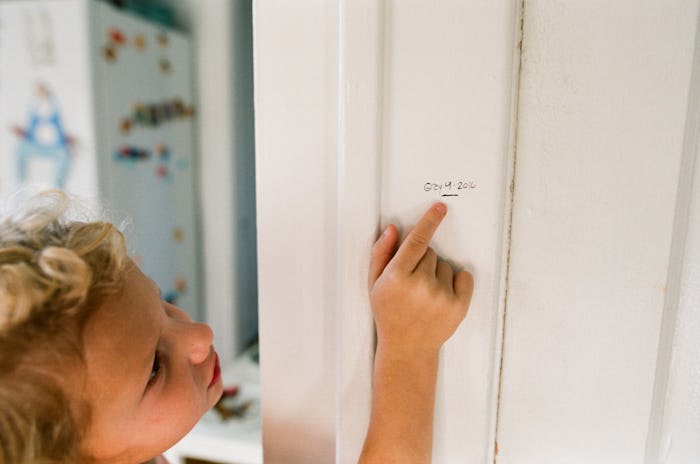Life

If You're Up For Some Math, You Can *Maybe* Predict Your Kid's Future Height
Before each of my kids was born, I spent so much time wondering what they'd be like once they arrived. What color would their eyes be? Would they have any hair? Whose nose would they get? Even though each of my babies was born absolutely perfect in my eyes and continues to stay that way, I still can't help but feel curious about how they'll grow and change over the years. Will they be shorties like mommy, average height like daddy, or six footers like some other relatives? If you're looking to determine how tall your child will be like me, it turns out you might be able to make a somewhat educated guess.
There are a few different formulas that can give you an estimate of how tall your kid will grow up to be. The Mayo Clinic noted that height is heavily influenced by genetics, so if mom and dad are on the shorter side, you're probably not going to give birth to an NBA center. One formula for determining a child's height adds together each parent's height in inches or centimeters, then adds five for a boy or subtracts five for a girl. That number is then divided by two. For my 5'9 husband and my 5'2 self, (69 + 62), we get a predicted height of 5'3 for our daughter and 5'8 for our son. If you don't feel like doing the math yourself, there are online calculators to do the work for you, including this one at Baby Center.
Another method for figuring out how tall your child will be looks at their height at age 2 for boys, or 18 months for girls, and then doubles it. Healthy Children noted that while this method is relatively common, there isn't any research to back up its accuracy. My daughter was around 33 inches tall at 18 months, so using this method, she'd be 5'6 as an adult. That's a three inch height different from the other method listed, so I'm going to take both predictions with a grain of salt.
The best way to get answers about your child's height is with something called a bone study, according to Kids Health. But a doctor won't order one just for the heck of it — they're usually recommended when there are serious indications that something might be off with your child's growth. Bone studies typically involve an X-ray of the hand, and let doctors look at growth plates which can show whether growth is happening at the appropriate pace. Kids with hormone disorders or genetic conditions may need to undergo this test.
Lots of parents worry about how tall their children will be, especially their sons. And unfortunately, there are some valid reasons for it. Short men deal with a definite stigma around their height according to Psychology Today, and Forbes reported on a 2016 study which found that shorter men don't have as much career success as tall men. It seems to be a pretty superficial phenomenon if you ask me, and one I hope that society can collectively put to rest some day soon.
Bottom line: if you're worried about your child's height, run your concerns by a doctor. But if short stature is probably just the genetic hand your kid has been dealt, be sure to let them know that good things come in small packages.